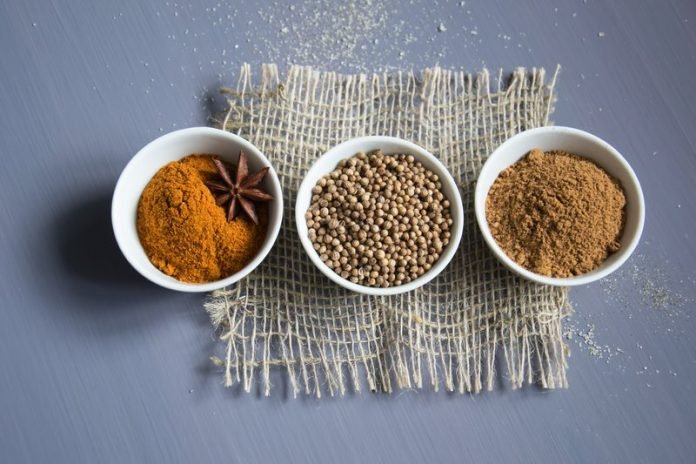
In a new study, researchers found curcumin, a natural compound found in the spice turmeric, could help eliminate certain viruses.
The research was conducted by a team at the Wuhan Institute of Bioengineering.
The study showed that curcumin can prevent Transmissible gastroenteritis virus (TGEV) – an alpha-group coronavirus that infects pigs—from infecting cells.
At higher doses, the compound was also found to kill virus particles.
Infection with TGEV causes a disease called transmissible gastroenteritis in piglets, which is characterized by diarrhea, severe dehydration and death.
TGEV is highly infectious and is invariably fatal in piglets younger than two weeks, thus posing a major threat to the global swine industry.
There are currently no approved treatments for alpha-coronaviruses and although there is a vaccine for TGEV, it is not effective in preventing the spread of the virus.
To determine the potential antiviral properties of curcumin, the research team treated experimental cells with various concentrations of the compound, before attempting to infect them with TGEV.
They found that higher concentrations of curcumin reduced the number of virus particles in the cell culture.
Curcumin has been shown to inhibit the replication of some types of viruses, including dengue virus, hepatitis B, and Zika virus.
The compound has also been found to have a number of significant biological effects, including antitumor, anti-inflammatory and antibacterial activities.
Curcumin was chosen for this research due to having low side effects.
The team says there are great difficulties in the prevention and control of viral diseases, especially when there are no effective vaccines.
Traditional Chinese medicine and its active ingredients are ideal screening libraries for antiviral drugs because of their advantages, such as convenient acquisition and low side effects.
One author of the study is Dr. Lilan Xie, a researcher at the Wuhan Institute of Bioengineering.
The study is published in the Journal of General Virology.
Copyright © 2020 Knowridge Science Report. All rights reserved.



